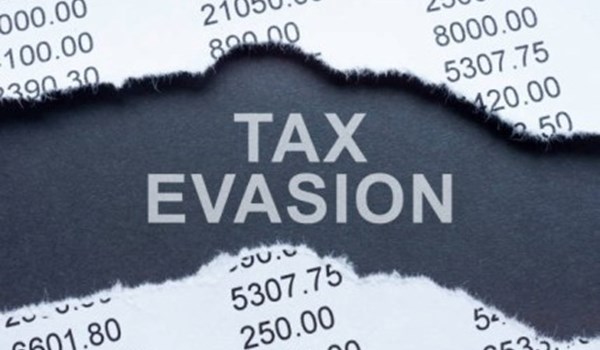The coalition behind the state’s “Fair Share Amendment,” or millionaire’s tax, is pushing for increased taxes on “billionaire global corporations” and calling on lawmakers to use the state’s rainy day fund to bridge any potential budget gap resulting from the Trump Administration’s quest to slash government spending.
The group Raise Up Massachusetts, a collection of more than 100 community organizations, faith-based groups, and labor unions, says that it’s time for the richest companies in the world to start paying their fair share of state taxes and stop hiding their profits overseas.
The call for a change in the corporate tax code comes, they say, as the federal government takes a hatchet to grant and loan programs aimed toward the states and as the state’s budget writers plan for the next fiscal year.
“D.C. Republicans are accelerating their plans to slash Medicaid, crush our higher education system, and incapacitate the entire federal government. Massachusetts faces potentially devastating budget cuts as a result,” Chrissy Lynch, president of the Massachusetts AFL-CIO, said in a statement.
“Meanwhile, multinational corporations like Apple, Amazon, McDonald’s, and Walmart have spent decades raising prices and raking in record profits, all while concealing their profits in offshore tax havens to avoid paying their fair share in Massachusetts taxes,” Lynch said.
According to the advocacy group, as it currently stands Massachusetts differs from most New England states in charging 5% of the Global Intangible Low-Taxed Income tax, a provision created during the first Trump Administration to combat corporate use of off-shore tax havens. While the rate varies from state to state, many states charge a 50% GILTI tax on corporate profits, including neighboring jurisdictions like Maine, New Hampshire, Rhode Island, and Vermont.
The group cites a recent report from the Massachusetts Budget and Policy Center, which found the Bay State could recoup hundreds of millions annually with “a straightforward change” to the law by reversing a 2018 rule which uncoupled “state treatment of GILTI income from the federal tax code.”
“This income was redefined as dividends, with the result that only 5% of these shifted profits are included in state tax calculations. Reversing this change and returning our state tax code to the federal approach that includes 50% of GILTI in tax calculations would allow the Commonwealth to collect hundreds of millions of tax dollars each year,” the report reads, in part.
The disparity between the rate charged by the Bay State and what it could charge, according to the report, “means that Massachusetts loses 90 percent of the tax revenue that we otherwise would collect on the GILTI profits of multinational corporations operating in the Commonwealth.”
The “Corporate Fair Share” proposal would see the Bay State raise the GILTI tax to bring the state “in line with the federal government and other states,” effectively ending a practice that they say gives multinational corporations an unfair leg up over local enterprise.
A pair of bills filed by state Rep. Carlos González and state Sens. Jason Lewis and Liz Miranda would do just that.
“Massachusetts can protect access to healthcare, food security, education, and other critical public services by doing the opposite of what Trump, Musk, and their allies are doing in Washington,” Cindy Rowe, the president of the Jewish Alliance for Law and Social Action, said in a statement. “We can ask the most profitable corporations in the world, who go to great lengths to hide their US profits in offshore tax havens, to pay their fair share here in Massachusetts.”
In addition, Raise Up Massachusetts is calling on lawmakers to tap into the state’s Stabilization Fund, also known as the rainy day fund, which currently sits at close to $9 billion. The commonwealth was already looking at a budget gap before Trump’s second term started, the group says, and with the cuts proposed by the administration, now is not the time for the state to sit on our savings.
“We can tap a reasonable portion of our state’s record rainy day fund, which has risen to nearly $9 billion in recent years. By taking these reasonable steps now, we can put Massachusetts in a strong position to protect our residents from the chaos of the next couple years,” Lynch said.
Paul Craney, a spokesman for the Massachusetts Fiscal Alliance, said that it’s strange to see a Bay State based advocacy groups or Beacon Hill lawmakers attempting to mirror New Hampshire’s sound fiscal policies, but not surprising considering this particular policy represents a tax increase.
“It’s funny this organization doesn’t want to align with our neighboring states like New Hampshire when it’s a tax reduction, only when it’s an increase. It’s a typical Massachusetts, knee-jerk reaction,” he said.



